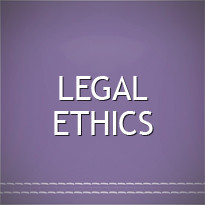B.M. No. 914 – 374 Phil. 342 – 316 SCRA 1 – Legal Ethics – The Legal Profession – Admission to the Bar – Citizenship Requirement – Only Filipinos may be admitted to the Philippine Bar
Political Law – Constitutional Law – Citizenship – Election of Filipino Citizenship; Meaning of “within reasonable time”
In 1998, Vicente Ching finished his law degree at the Saint Louis University in Baguio City. He eventually passed the bar but he was advised that he needs to show proof that he is a Filipino citizen before he be allowed to take his oath. Ching was born in 1964. Apparently, Ching’s father was a Chinese citizen but his mother was a Filipino citizen. Citizenship under the 1935 Constitution, which was in effect when Ching was born, was treated as follows:
The following are citizens of the Philippines:
(1) Those who are citizens of the Philippine Islands at the time of the adoption of this Constitution.
(2) Those born in the Philippine Islands of foreign parents who, before the adoption of this Constitution, had been elected to public office in the Philippine Islands.
(3) Those whose fathers are citizens of the Philippines.
(4) Those whose mothers are citizens of the Philippines and, upon reaching the age of majority, elect Philippine citizenship.
(5) Those who are naturalized in accordance with law.
Ching maintained that he has always considered himself as a Filipino; that he is a certified public accountant – a profession reserved for Filipinos; that he even served as a councilor in a municipality in La Union.
The Solicitor-General averred that as a legitimate child of a Chinese and a Filipino, Ching should have elected Filipino citizenship upon reaching the age of majority; that under prevailing jurisprudence, “upon reaching the age of majority” is construed as within 7 years after reaching the age of majority (in his case 21 years old because he was born in 1964 while the 1935 Constitution was in place).
Ching did elect Filipino citizenship but he only did so when he was preparing for the bar in 1998 or 14 years after reaching the age of majority. Nevertheless, the Solicitor-General recommended that the rule be relaxed due to the special circumstance of Ching.
ISSUE: Whether or not Ching should be allowed to take the lawyer’s oath.
HELD: No. Unfortunately, he belatedly elected Filipino citizenship. The Supreme Court explained that the original interpretation of electing Philippine citizenship “upon reaching the age of majority” was that the person concerned must make the election within a reasonable time upon reaching the age of majority. In one case, “reasonable time” was construed to be three years but may be extended depending on the circumstances such as if one had always considered himself or herself a Filipino all his/her life. Ching’s special circumstances can’t be considered however. It is not enough that he considered all his life that he is a Filipino; that he is a professional and a public officer (was) serving this country. The rules for citizenship are in place. Further, Ching didn’t give any explanation why he belatedly chose to elect Filipino citizenship. He only elected Philippine citizenship in 1999 or 14 years after reaching the age of majority. The prescribed procedure in electing Philippine citizenship is certainly not a tedious and painstaking process. All that is required of the elector is to execute an affidavit of election of Philippine citizenship and, thereafter, file the same with the nearest civil registry. Ching’s unreasonable and unexplained delay in making his election cannot be simply glossed over.
SIDE ISSUE: But the 1935 Constitution was superseded by the 1973 and the 1987 Constitutions which expressly provided that Those whose fathers or mothers are citizens of the Philippines are also citizens of the Philippines. Did that not make Ching a Filipino citizen because his mother was a Filipino?
HELD: No. Firstly, the 1973 and 1987 Constitutional provisions on the election of Philippine citizenship should not be understood as having a curative effect on any irregularity in the acquisition of citizenship for those covered by the 1935 Constitution. If the citizenship of a person was subject to challenge under the old charter, it remains subject to challenge under the new charter even if the judicial challenge had not been commenced before the effectivity of the new Constitution.


